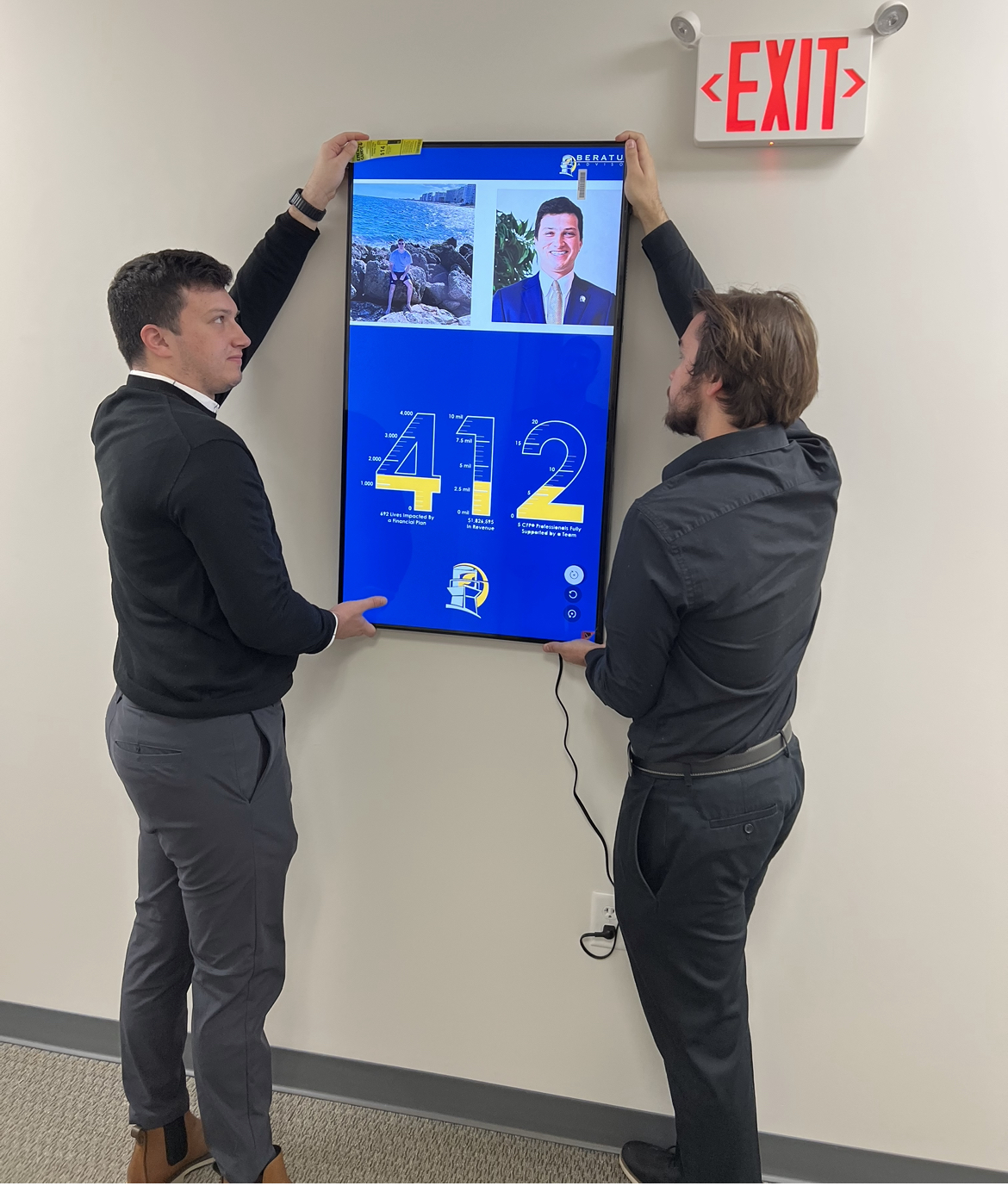At Beratung we embrace the 80% rule and MVP as part of our culture. We want to lean towards action and then improvement instead of inaction and perfection.
In leadership, this concept often gets overlooked in the pursuit of perfection, because we want to always be right. That is where the the 80% rule come in.
This principle, grounded in the philosophy of efficiency and progress, emphasizes that achieving perfection isn’t always necessary or even attainable. Instead, aiming for 80% completion can lead to faster results, increased innovation, and a culture of agility. Often the finished product is better because you can test your concept and adapt.
The MVP Mentality
Think of it as the “Minimum Viable Product” (MVP) approach applied to leadership. In the realm of product development, an MVP is the simplest version of a product that can be launched to gather valuable feedback and insights. Similarly, as leaders, we can adopt an MVP mentality, focusing on delivering the most essential and impactful aspects of a project or goal. A few years ago, we were updating our website. We spent a lot of time developing it but we launched it with an MVP. There were many additional improvements we planned to make but we wanted to start using it. We ended up adapting and changing much of the future plans once it was being used and found a lot of errors. The reality is we are not done improving and changing our website. Almost weekly we have updates. Had we waited for perfection instead of MVP we would not have had the success we have had with our website.
Unleashing Agility
By embracing the 80% rule and MVP approach, leaders create an environment of agility. Instead of getting bogged down in endless details, teams can quickly test ideas, gather feedback, and iterate. If you embrace MVP your team can start working faster on the results. We were working on a policy update a few months ago.
Fostering Innovation
Perfectionism can stifle innovation. When leaders demand flawlessness, teams may hesitate to experiment and take risks. On the other hand, embracing the 80% rule empowers individuals to explore new ideas without the fear of failure. This mindset fosters a culture of innovation, where calculated risks are celebrated, and breakthroughs are more likely to occur.
A new team member not familiar with our MVP culture was given the accountability of creating it and was behind on the agreed upon completion date. The reason we found it was she was worried about getting it perfect. She had written and rewritten it many times. Instead, if she had brought the first draft to the team and got feedback, she would have been able to quickly adapt and update it more effectively in a shorter time.
The next similar project, she brought something that was MVP. We celebrated how quickly she made suggestions that she used. She has now embraced the MVP concept, knowing if it’s not perfect you can still succeed in our culture.
Accelerating Progress
Striving for 100% perfection often leads to delays and missed opportunities. In contrast, the 80% rule encourages timely execution. It allows projects to move forward, learn from real-world feedback, and make necessary adjustments on the fly. This acceleration in progress can be a game-changer in achieving goals and staying ahead of the competition.
We ran into this when we were looking to change our CRM (Client Relationship Management) software due to the technology being dated and not being able to complete some of the necessary tasks we have it for. When it came time to review other software options in the space, we had narrowed down to what we thought was the right choice. However, we hesitated because we could not be sure it would do 100% percent of what our old software does. Although being prudent is good, we failed to act. This caused us to delay the project by over a year. This was a year of lost productivity we had from fear of lost productivity. Instead, we should have taken action with 80% which was much better than our 50%.
Cultivating Confidence
Leaders who practice the 80% rule set an example of realistic expectations. This approach communicates that it’s okay to acknowledge imperfections and pivot when necessary. Such leaders create an environment where team members feel empowered to contribute, take ownership, and learn from their experiences.
We cannot just ask our team to do this, we must authentically live this out. I often am the cheerleader for our team to go with MVP and learn from the mistakes. If I am not willing to do this with the task, I am accountable for I cannot expect the team to do the same. Furthermore, when its not perfect, I need to embrace the mistakes and celebrate the lessons learned. A lot of leaders I find embrace this in theory but they set such high expectations that their team still strives for 100%.
Balancing Resources
Resource allocation is a crucial aspect of leadership. Pouring endless resources into achieving 100% perfection may not yield commensurate returns. The 80% rule allows leaders to allocate resources wisely, investing where it matters most and achieving results that align with the organization’s goals. We learned this when creating our “Hall of Vision,” which is a hallway in our headquarters that walks you through our 412 vision and our progress. It involves a tv for each year we have been in business telling the story of our progress. Instead, building out each year and then building out the hallway we built out and MVP with one TV. After doing so we learned a lot and changed a lot. We bought different TVs and mounts and ways to display it. This saved us resources as we made changes on the fly and lead to a better end result.
The Path Forward
As leaders, our responsibility is to drive progress, inspire growth, and lead with impact. Embracing the 80% rule and MVP mentality enables us to achieve just that. By focusing on what truly matters and encouraging a culture of experimentation and agility, we can unleash the potential of our teams and organizations.
Remember, leadership isn’t about achieving flawless outcomes—it’s about steering the ship toward success, adapting to changing waters, and empowering others to contribute their best. So, the next time you’re faced with the quest for perfection, consider the power of the 80% rule and ask yourself: Is good enough not only sufficient but the catalyst for innovation and progress?
Content in this material is for general information only and not intended to provide specific advice or recommendations for any individual.The opinions expressed in this material do not necessarily reflect the views of LPL Financial.
All examples are hypothetical and are not representative of any specific situation. Your results may vary.

An Impact So Great Our Community Would Weep If We Closed Our Doors
Part of our 412 Vision at Beratung Advisors is to have “An Impact so Great Our Community Would Weep if We Closed Our Doors.”

Generational Planning for Yinz
After eight years, we are changing our tagline from “Guidance with a Plan” to “Generational Planning for Yinz.”

4 Keys to Hearing God’s Voice
I first learned these 4 keys to hearing God’s voice on an L3 Mastermind Retreat from my friend Andrew Reichert, and it changed my life.

Give ‘Em The Pickle
We believe that a big part of culture is shared language. We have a shared language we call the Beratung Vernacular that helps us all row in the same direction.

13 Lessons I Learned From My Dad
My father was called home to be with God 13 years ago on Thanksgiving Day, November 24th, 2011. Today would have been his 76th birthday. There is not a day that goes by that I do not think of my dad. In his memory, I wanted to share the 13 most important lessons he taught me, one for each year he has not been with me.





